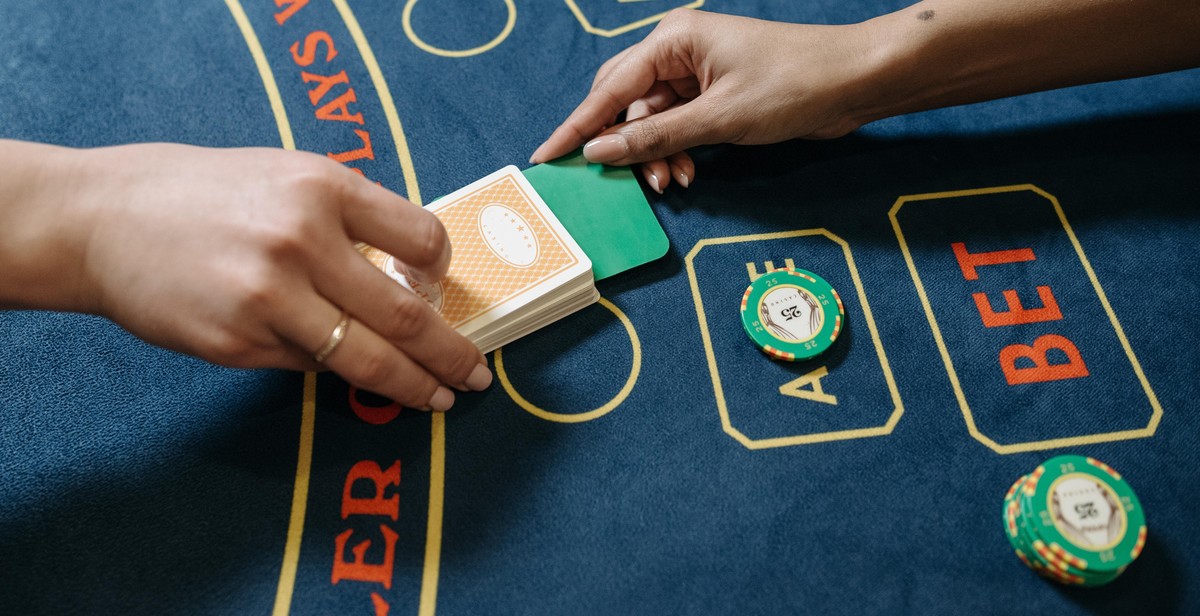Introduction: How to Play Pai Gow Poker
Pai Gow Poker is a unique and exciting card game that combines elements of traditional poker and the ancient Chinese game of Pai Gow. In this game, players compete against the dealer rather than each other, making it a fun and sociable experience for all involved.
What is Pai Gow Poker?
In Pai Gow Poker, each player is dealt seven cards, which they must split into two separate hands: a five-card hand (the “high hand”) and a two-card hand (the “low hand”). The aim of the game is to beat the dealer’s two hands using your own two hands.
One of the unique features of Pai Gow Poker is that the five-card hand must always be higher in value than the two-card hand. This adds an extra layer of strategy to the game, as players must carefully consider how to split their cards to create the best possible hands.
History of Pai Gow Poker
Pai Gow Poker was invented in the 1980s by casino owner and poker player Sam Torosian. Torosian was looking for a new game to attract customers to his casino, and he came up with the idea of combining elements of traditional poker with the ancient Chinese game of Pai Gow.
The game quickly became popular among casino-goers, and it can now be found in casinos all over the world. In recent years, online versions of Pai Gow Poker have also become increasingly popular, allowing players to enjoy the game from the comfort of their own homes.

Basic Rules of Pai Gow Poker
Hand Rankings
In Pai Gow Poker, each player is dealt seven cards from a standard 52-card deck, which they must split into two hands – a five-card hand and a two-card hand. The five-card hand must be higher in rank than the two-card hand, and both hands must beat the corresponding hands of the dealer.
The hand rankings in Pai Gow Poker follow the traditional poker hand rankings, with one exception – the Ace, 2, 3, 4, and 5 straight (known as the wheel) is considered the second-highest straight, just below the Ace-high straight. The highest possible hand in Pai Gow Poker is five Aces, which consists of four Aces and a Joker.
How to Play the Game
Once the players have received their seven cards, they must split them into two hands – a five-card hand and a two-card hand. The five-card hand must be higher in rank than the two-card hand, and both hands must beat the corresponding hands of the dealer.
After all players have set their hands, the dealer reveals their own hand and sets it according to a predetermined set of rules known as the “house way.” The dealer’s hands are then compared to the players’ hands, and payouts are made accordingly.
When it comes to setting your hands, there are a few basic strategies to keep in mind:
- Always set your two-card hand with your second-highest pair.
- When you have two pairs, split them unless you also have an Ace or a King.
- If you have no pairs, set your highest card in the five-card hand and the next two highest cards in the two-card hand.
- When you have a straight or a flush, always set it in the five-card hand unless you also have two pairs.
- When you have three pairs, split the highest pair between the two hands.
It’s important to remember that Pai Gow Poker is a slow-paced game, with a low house edge and a high degree of strategy. By following these basic rules and strategies, you can increase your chances of success and have a great time at the casino.

Advanced Strategies for Pai Gow Poker
Understanding the House Edge
Before you start playing Pai Gow Poker, it is important to understand the house edge. The house edge is the advantage that the casino has over the player. In Pai Gow Poker, the house edge is around 2.5%. This means that for every $100 that you bet, you can expect to lose $2.50 on average. However, there are ways to reduce the house edge and increase your chances of winning.
Banking Options
In Pai Gow Poker, players take turns being the banker. This gives the player a slight advantage over the other players at the table. However, being the banker also comes with additional responsibilities, such as paying a commission on winning hands. If you are playing at a casino that allows for banking options, it is important to weigh the pros and cons before deciding to be the banker.
Optimizing Your Hand
In Pai Gow Poker, you are dealt seven cards that you must split into two hands: a five-card hand and a two-card hand. The goal is to have both hands beat the dealer’s hands. One strategy to optimize your hand is to always play the highest possible two-card hand without breaking up the five-card hand. For example, if you are dealt a pair of Aces and a pair of Kings, you should split the Aces and Kings, and play the Aces in the two-card hand and the Kings in the five-card hand.
Managing Your Bankroll
Managing your bankroll is crucial in Pai Gow Poker. It is important to set a budget for yourself and stick to it. One strategy is to divide your bankroll into smaller sessions. For example, if you have a bankroll of $500, you can divide it into five sessions of $100 each. This way, if you lose one session, you still have money left to play another session. It is also important to know when to walk away. If you are on a losing streak, it is better to take a break and come back another day.
| Strategy | Description |
|---|---|
| Understanding the House Edge | Know the advantage the casino has over you and ways to reduce it |
| Banking Options | Weigh the pros and cons of being the banker |
| Optimizing Your Hand | Play the highest possible two-card hand without breaking up the five-card hand |
| Managing Your Bankroll | Set a budget, divide your bankroll into smaller sessions, and know when to walk away |
Tips for Playing Pai Gow Poker
Playing Pai Gow Poker can be a fun and exciting experience, especially when you know what you’re doing. Here are some tips to help you improve your skills and increase your chances of winning:
Practice and Patience
Like any other casino game, Pai Gow Poker requires practice to master. Take advantage of free online versions of the game to get a feel for the rules and develop your strategy. When playing at a casino, start with low stakes tables until you feel confident enough to move up.
Also, be patient when playing Pai Gow Poker. The game is slow-paced, and it’s important to take your time when making decisions. Rushing can lead to mistakes that could cost you the game.
Observation and Analysis
Observation is key to playing Pai Gow Poker. Pay attention to the dealer’s actions and the other players’ hands. This can give you insight into their strategies and help you make better decisions.
Additionally, analyze your own hand carefully before making any moves. Look for the best possible combinations and consider the odds of winning. Don’t be afraid to take risks, but make sure they are calculated ones.
Learning from Your Mistakes
Mistakes are inevitable when playing Pai Gow Poker, but it’s important to learn from them. Take note of your errors and analyze what went wrong. Did you make a hasty decision? Did you misread your hand? By identifying your mistakes, you can avoid making them again in the future.
Furthermore, don’t let losses discourage you. Instead, use them as learning opportunities. Analyze what caused the loss and adjust your strategy accordingly.
In conclusion, by practicing patience, being observant, and learning from your mistakes, you can improve your skills and increase your chances of winning at Pai Gow Poker.
Conclusion
Playing Pai Gow Poker can be a lot of fun, but it requires a certain level of skill and strategy to be successful. By following the advanced strategies outlined in this article, you can increase your chances of winning and walk away from the casino with a bigger bankroll.
Remember to always start by selecting the best possible hand for your front and back hands. This will give you a solid foundation to work with as you make your decisions throughout the game. You should also pay attention to the dealer’s up card and adjust your strategy accordingly.
Another important tip is to manage your bankroll wisely. Set a budget for yourself before you start playing and stick to it. Don’t chase losses or bet more than you can afford to lose.
Finally, practice makes perfect. Take advantage of free Pai Gow Poker games online or in person to hone your skills and get comfortable with the game. With enough practice and a solid strategy, you can become a successful Pai Gow Poker player and enjoy all the excitement and rewards that come with it.
| Pros | Cons |
|---|---|
| Fun and exciting game | Requires skill and strategy |
| Low house edge | Can be intimidating for beginners |
| Opportunity to win big payouts | Not available at all casinos |
Overall, Pai Gow Poker is a great game to play if you’re looking for a new challenge at the casino. With these advanced strategies and a little bit of luck, you can increase your chances of winning and have a great time while doing it.
